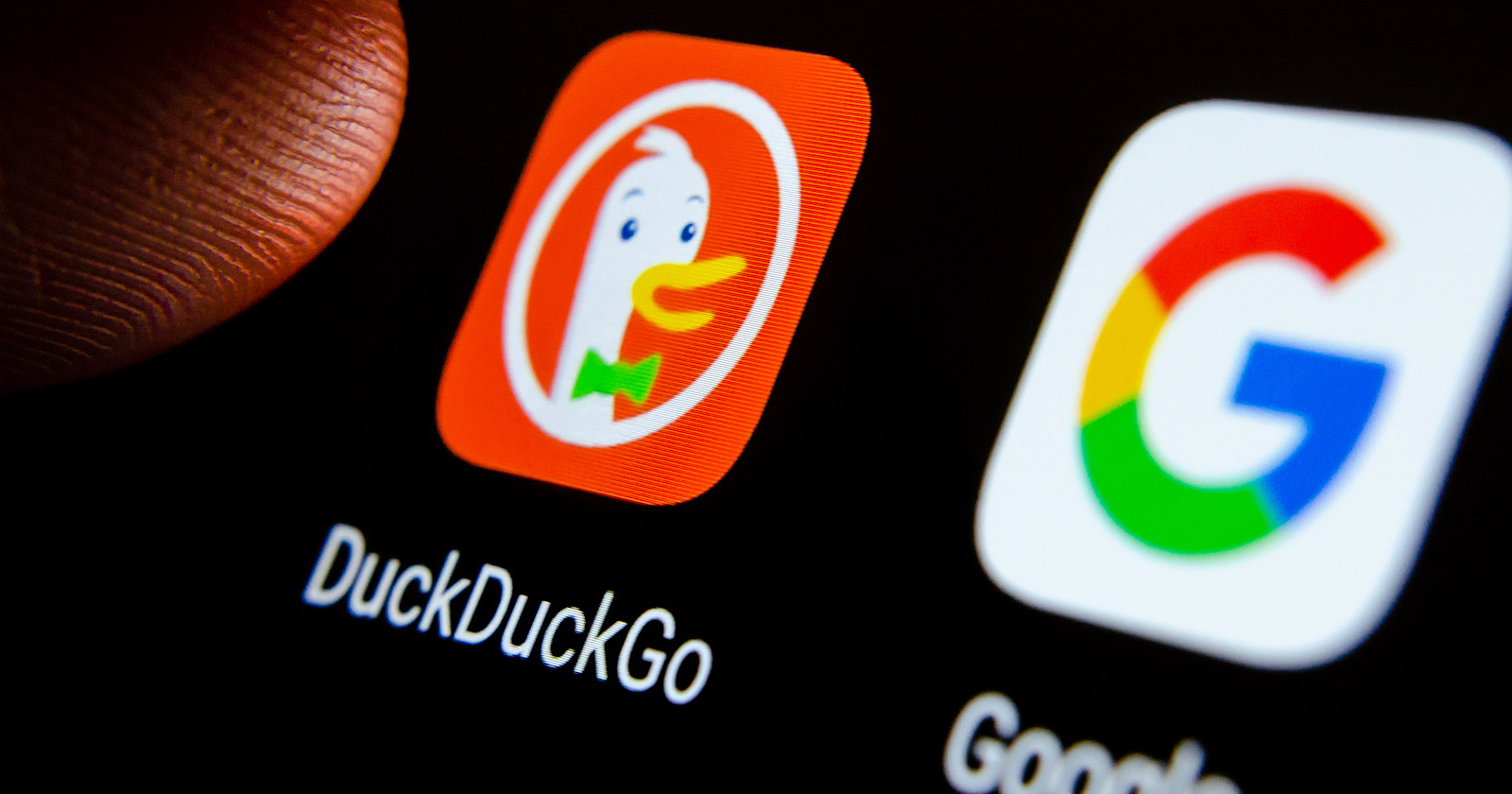DUCKDUCKGO
DuckDuckGo is Now a Default Search Engine Option on Android in the EU

DuckDuckGo will soon be offered as an option for default search engine on Android devices across the EU.
European regulators are forcing Google to present Android users with the option to choose their own default search engine. The option to choose default search providers has always been available on Android devices, but it’s something users would have to seek out on their own in the settings menu.
Google’s previous practices of setting itself as the default search provider on its own operating system was ruled illegal under EU antitrust rules. As a result, Google was hit with a record-breaking $5 billion fine.
Now, Google has to change its practices and prompt users to choose their own default search engine when setting up a European Android device that has the Google Search app built in. Not all countries will have the same options, however, as the choices included in Google’s new prompt all went to the highest bidders.
As it turns out, DuckDuckGo must have bid more aggressively than other Google competitors, as it’s being offered as a choice across all countries in the EU.
DuckDuckGo is a Default Search Choice Across the EU
When Android users in the EU boot up a new device they will be presented with three Google alternatives to choose from as their default search provided. DuckDuckGo will be at the top of the list in all countries.
Other options, which differ across the EU, include Info.com, Yandex, Qwant, GMX, PrivacyWall, Givero, and Seznam. Bing will only be offered as an option in the United Kingdom, which perhaps is an indication of where Bing sees itself being most profitable.
A full list of countries and their corresponding choices for default search engine can be found here. Android Police reports the “Choice Screen” will be rolled out to Android users in Europe in March 2020.
It will be interesting to see what impact this change has on search engine marketshare in the EU, if there’s any change at all. Users can, of course, continue to choose Google as their default if that’s what they prefer.
DUCKDUCKGO
Why DuckDuckGo want Masses to Sap Chrome

The security of web surfers is a major issue, and it’s a legitimate one. Your personal information may be at risk because of a breach of privacy. As a result, it’s critical that large internet businesses like Google preserve your anonymity when you utilize their services. However, are the tech giant’s privacy pledges really real? DuckDuckGo, on the other hand, isn’t convinced. With its Threads and FLEDGE services, the private browser has accused the former of violating its customers’ privacy rights. DuckDuckGo is fighting Google over this, but why is that? Let see!
DuckDuckGo Has Accused Google of Reneging on Its Promise to Protect Users’ Privacy
NEW: DuckDuckGo’s Chrome extension now blocks Google’s new tracking method “Topics” and new ad re-targeting method FLEDGE.
Google says they’re better for privacy, but the simple fact is tracking is tracking, no matter what you call it.https://t.co/r9GFLdXmTT
— DuckDuckGo (@DuckDuckGo) May 11, 2022
The Search engine has accused Google of making false statements about the security of its Discussions as well as FLEDGE services. According to the post shared in the May of this year, the corporation slammed the latter for making false claims that its goods were more secure. In order to create a “more private web,” The Tech giant established its Security Sandbox in August of this year. Discussions and FLEDGE were introduced at the beginning of this year via the Sandbox once FLoC was discontinued due to considerable controversy.
The concept is that users have greater authority and visibility over their personal information since you may eliminate subjects you dislike or deactivate Topics altogether. When it comes to Google’s FLEDGE product, the company says it’s “built in a way that no other third-party application can leverage it to monitor user surfing activity between websites.” Google’s product promises are called out by DuckDuckGo, which suggests that their software is superior. However, there are a number of other methods available for ensuring your safety when surfing the web.

Why This Fierce Rivalry?
Basically speaking, the former alleges that Google is misleading its consumers by claiming that Topics and FLEDGE are more secure than the latter’s Search because of this. For more information on these services, check out this blog post from the corporation: As a result, it claims that despite Google’s assurances of increased confidentiality, the company’s new services are really “creepy” and “privacy-invasive.”
Since these programs monitor your digital behavior and exchange your personal information with web pages and advertising without your permission, the firm considers this to be the case. – The overarching argument from the former is that your information isn’t secure until privacy is set as the preferred setting.

To provide just one example, it claims Google’s justification that customers may eliminate Subjects they wouldn’t wish to be monitored for is codswallop since most users don’t alter their standard browsing options According to the report, Google’s “dark patterns” render it extremely tough for consumers to accomplish just that. DuckDuckGo claims that FLEDGE operates in the same way as third-party cookies. Ads may approach users on some other pages by requesting that Google classify and categorize them like a certain demographic.
The bottom line is that Google nonetheless sells your information to advertising and renders it difficult for users to modify the configuration to private. Ads may target and re-target your browsing history, which is one major and lingering concern.
DUCKDUCKGO
DuckDuckGo Disappoints Users: Trackers in Search
DuckDuckGo sees itself as an anonymous alternative to Google. But the internal browser makes an exception for Microsoft tracking, which surprises many users. We explain to you what it is.
DUCKDUCKGO
DuckDuckGo Admits Allowing Microsoft Trackers in Its Browser
The so-called privacy-centric search engine DuckDuckGo is said to have been allowing Microsoft ad trackers in its browser, which is contrary to its private browsing principles.
This was found by a security researcher, who noted DuckDuckGo’s browser for iOS and Android allows trackers from LinkedIn and Bing. Soon, DuckDuckGo’s CEO came up to explain that it’s an intentional allowance for Microsoft due to an agreement, which they’re trying to void.
Microsoft Trackers in DuckDuckGo Browser
Observing the web becoming filthy with trackers and cookies for targeted ads, companies like DuckDuckGo, Brave, etc., have risen to offer privacy-focused users a healthy alternative. DuckDuckGo, for example, promises to block all the trackers and cookies to avoid any interest-based advertising.
But to sustain, it shows contextual-based ads, which don’t need deeper tracking like what Chrome does. DuckDuckGo, in this case, relies on Bing search results to serve its own customers, thus will show any ads that come from Microsoft.
Though Microsoft tracks your IP address and other related information when clicking on an ad link, it does that for “accounting purposes” and not to profile users for advertising. And since DuckDuckGo uses the Bing engine, Microsoft slipped in a clause to let its trackers in DuckDuckGo’s mobile browsers.
You can capture data within the DuckDuckGo so-called private browser on a website like Facebook’s https://t.co/u8W44qvsqF and you’ll see that DDG does NOT stop data flows to Microsoft’s Linkedin domains or their Bing advertising domains.
iOS + Android proof:
👀🫥😮💨🤡⛈️⚖️💸💸💸 pic.twitter.com/u3Q30KIs7e— ℨ𝔞𝔠𝔥 𝔈𝔡𝔴𝔞𝔯𝔡𝔰 (@thezedwards) May 23, 2022
This was proved by a security researcher named Zach Edwards, who discovered Microsoft trackers in DuckDuckGo’s iOS and Android clients. He found trackers related to the bing.com and linkedin.com domains while all other (like from Google, Facebook, etc.) trackers are blocked!
This raged the community as to why DuckDuckGo hid this information from users while boasting to be transparent about all its advertising plans. Soon, the platform’s CEO and founder Gabriel Weinberg came up to admit that it was an agreement with Microsoft to let their trackers in DuckDuckGo’s mobile browsers.
When you load our search results, you are completely anonymous, including ads. For ads, we worked with Microsoft to make ad clicks protected. From our public ads page https://t.co/KHpWJ8LIV5, “Microsoft Advertising does not associate your ad-click behavior with a user profile.”
— Gabriel Weinberg (@yegg) May 23, 2022
Explaining that it was a search syndication agreement with Microsoft, Weinberg’s team is working to remove this clause from their agreement. Further, “We’re also working on updates to our app store descriptions to have more information. Hope this is helpful context.”
-

 PPC5 days ago
PPC5 days agoHow the TikTok Algorithm Works in 2024 (+9 Ways to Go Viral)
-

 MARKETING7 days ago
MARKETING7 days agoA Recap of Everything Marketers & Advertisers Need to Know
-

 SEO6 days ago
SEO6 days agoBlog Post Checklist: Check All Prior to Hitting “Publish”
-

 SEO4 days ago
SEO4 days agoHow to Use Keywords for SEO: The Complete Beginner’s Guide
-

 MARKETING5 days ago
MARKETING5 days agoHow To Protect Your People and Brand
-

 SEARCHENGINES6 days ago
SEARCHENGINES6 days agoGoogle Started Enforcing The Site Reputation Abuse Policy
-

 PPC6 days ago
PPC6 days agoHow to Craft Compelling Google Ads for eCommerce
-

 MARKETING6 days ago
MARKETING6 days agoElevating Women in SEO for a More Inclusive Industry















